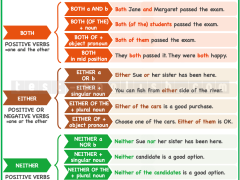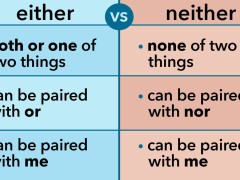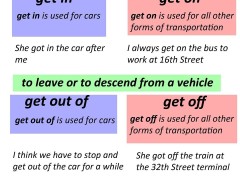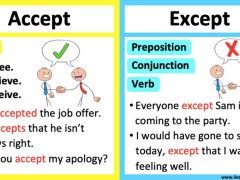conductor [kənˈdʌktə] n. 售票
【扩】ticket seller 售票员 booking clerk 售票员
【搭】bus conductor 公交车售票员
* * *
A: Can you pass the fare to the conductor for me?
B: Sure. Is it just right?
A:你能帮我把车费递给售票员吗?
B:当然,是正好的吗?
* * *
fare [fɛə] n. 车费,车票
【派】farewell 再见 welfare 福利
【扩】outlay 费用 fee 费用
【搭】bus fare 车费
* * *
A: What's the round-trip fare?
B: It will cost you eighty dollars.
A:往返票多少钱?
B:那要80美元。
* * *
change [tʃeindʒ] v. 兑换(钱)
【派】changeable 易变的
【搭】change one's mind 改变主意
* * *
A: Where can I change some money?
B: You can go to Window 3 to deal with it.
A:我可以在哪儿兑换一些钱?
B:你可以到三号窗口去办理。
* * *
note [nəut] n. 纸币
passenger [ˈpæsindʒə] n. 乘客
none [nʌn] pron. 没有任何东西
neither [ˈnaiðə, ˈniːðə] adv. 也不
【搭】neither...nor...既不……也不……
* * *
A: I haven't been to a movie for ages.
B: Neither have I. Why not go to see a movie tonight?
A:我几年没去电影院了。
B:我也是。我们今晚去看怎么样?
* * *
get off 下车
tramp [træmp] n. 流浪汉
except [ikˈsept] prep. 除……外
【派】exception 例外
【扩】besides 除……之外…… exclude 排除
【搭】except for 除了
* * *
A: The programs tonight are excellent.
B: Yes, everything is good except the commercials.
A:今晚的节目都很精彩。
B:是的,除了广告,每个节目都很棒。
noun [专属名词](乐队等的)指挥;售票员,检票员;导体;<英>传导教育的引导者 - The conductor beat time with a baton.
noun [专属名词]交通费用;乘客;饭菜;常见的东西;供大众使用的东西(尤指娱乐活动) - He could barely afford the fare.
verb [vi. 不及物动词]进展,表现;<古> 发生,结果;<古>出游,旅行 - When do they start paying full fare?
verb [vt. 及物动词]改变,变化;更换,替换;换乘;兑换,找零;交换,互换 - The ambassador appealed for a change in U.S. policy.
noun [抽象名词]变化,变革;找回的钱,零钱;换乘;替代物,替换衣物;全新体验;转成新月;钟乐敲打的一种套路 - It is a complex system, but it certainly makes a change.
noun [具体名词]短笺,便条;笔记;重要性,值得注意之处;注释,批注;记录,备忘录;正式文件,证明书;个人信息,个人档案;纸币;音调,音符;说明,提示;票据 - Stevens wrote him a note asking him to come to his apartment.
verb [vt. 及物动词]留意,注意;指出,提及;记录,记下 - When you note something, you write it down as a record of what has happened.
复数情况
- a fifty-pound note
- a fifty pounds note
- two fifty-pound notes
- two fifty pounds notes
make notes 做笔记
noun [专属名词]硬币,金属货币 - The coin rolled underneath the piano.
verb [vt. 及物动词]创造新词,首次使用;铸币,造币 - It would be better to decide it on the toss of a coin.
- nickel = five cents = 5美分
- dime = ten cents = 10美分
- quarter 25美分
noun [专属名词]乘客,旅客;(团体中)不干活的人,闲散人员 - I sat in the passenger seat.
adjective [原级]乘客的,旅客的 - She wedged herself into the passenger seat.
pronoun [关系代词]全无 - None of them could sing in tune.
adverb [程度副词]毫无,绝不(none the);(与 too 加形容词或副词连用)绝不 - He seems none the worse for the experience.
noun [专属名词]申初经(天主教七段祈祷时间中的一部分,通常在一天中的第九个小时 下午3点) - You could end up none the wiser about managing your finances.
以字母n开始的单词
- no
- not
- never
- none
- negative
- neither
none= no + n.
- He has no money, no girlfriend, no house = He has none.
pronoun [指示代词](两者中)无一个 - She seemed neither surprised nor worried.
conjunction [并列连词]既不…(也不…);也不(用于否定句后,表示前句适用于所有提到的人或物);也不(用于否定句后,强调要引出另一否定句) - Professor Hisamatsu spoke neither English nor German.
adverb [方式副词](否定的陈述同样适用于其他人或物)也不;(否定的陈述适用于两方面)既不…也不… - They both smiled; neither seemed likely to be aware of my absence for long.
adjective [原级]两者都不的 - They both smiled; neither seemed likely to be aware of my absence for long.
conjunction [并列连词]或者,要么;两者都(不),既(不) - You use either in a negative statement in front of the first of two alternatives to indicate that the negative statement refers to both the alternatives.
pronoun [指示代词](两者之中)任意一个;两者都(不) - You use either in a negative statement to refer to each of two things, people, or situations to indicate that the negative statement includes both of them.
adverb [方式副词]也(不),亦(不);而且,还 - Don't agree, but don't argue either.
adjective [原级](两者中的)每个的,各方的 - ...a special Indian drug police that would have the authority to pursue suspects into either country. …
noun [抽象名词]下车:从交通工具(如公共汽车、火车、自行车等)上下来。起床:从床上起来,结束睡眠。离开:离开某个地方或停止做某事。 - At eight I said 'I'm getting off now.' 8
noun [专属名词]上车:指登上交通工具,如公共汽车、火车等。进展、相处 - The host fears the guests won't get on...
get in the car 小车
get on the train 大车
- Please get ready to get off the bus. 请做好下车的准备
verb [vi. 不及物动词]拖着沉重的脚步走,踩,踏;长途跋涉 - They put on their coats and tramped through the falling snow.
noun [专属名词]流浪汉,流浪乞丐;沉重的脚步声;长途步行,徒步旅行;(航线不定的)货船;(为挖地而穿的长统靴底)金属片;铲尖;<贬>不正经的女人 - Hypothermia is common among tramps sleeping outdoors.
noun [专属名词]流浪者,乞丐;离群鸟 - He lived on the street as a vagrant.
adjective [原级]流浪(者)的,流浪生活的;无定向的,游移不定的;<文>无常的 - The vagrant had to beg for money.
preposition [状态和条件]除…外,不包括 - I wouldn't have accepted anything except a job in New York.
conjunction [从属连词]除了,只是;要不是 - Freddie would tell me nothing about what he was writing, except that it was to be a Christmas play.
verb [vi. 不及物动词]不包括,把…排除在外 - I like all sports except football.
- Everybody is here except Sam. 除了 Sam,大家都来了。(Sam 没来 减法)
- Besides Sam there are many who wear glasses. 除了 Sam,还有很多人戴眼镜。(Sam 戴了 加法)
- Apart from a few words, I do not know any French at all.













